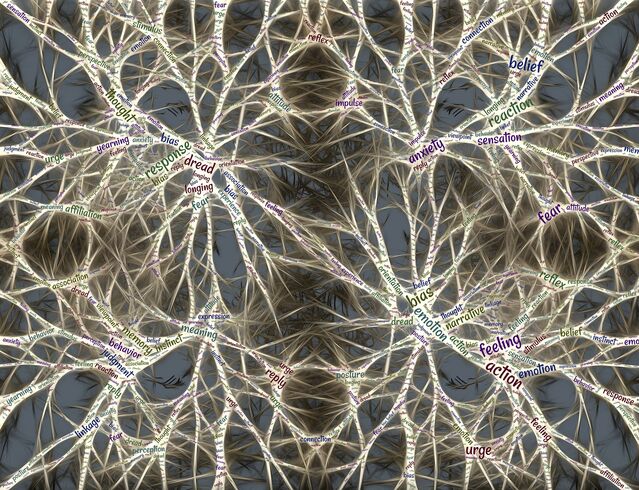Stress
Why Change Is Hard
How to be kinder to yourself when going through change.
Posted April 29, 2022 Reviewed by Ekua Hagan
Key points
- Change takes effort emotionally, and humans tend to assume the worst when faced with something "different."
- Breaking a goal down into bite-sized pieces can help one maintain focus and celebrate wins.
- Change is a process, not a step, so it is critical to remain consistent.
Previously, I have spoken about how to get through change and noted that it takes three journeys with your "head," "heart," and "hands," yet I didn't explain why change is so hard. Understanding that change is a difficult task will help you be kinder to yourself when you are struggling to stick to new habits or when you are feeling frustrated when others are getting through.

We are emotional beings
First, we are emotional beings. As much as we value our rational and logical brain, it was the last part of our brain to evolve. Our emotional part of the brain (the amygdala) has been around much longer and is more fine-tuned to what's going on. So if we need to get through change, we need to emotionally get through because logic isn't enough.
Think about applying for that new role. It logically seems good because you will make more money and have more growth opportunities, but emotionally, it feels scary for some reason. Then, determine what scares you about the change. What inspires you? Connecting at an emotional level can help you identify and overcome underlying resistance or any positive feelings associated with the before-state.
Let's continue with the example of wanting to switch jobs. Your brain likely will fill with doubts about "Will I be successful?" "Will my coworkers like me?" What if my boss is a micro-manager?" Counter these by focusing on the positive emotions: the excitement of new opportunities, feeling less stressed because the job provides increased pay/benefits/etc. The change will also be easier if you look for jobs and people that better align with your values and goals as those will connect to your positive emotions.
We assume the worst
Second—because of our emotional brains—we assume the worst. It is wired to jump into action in case of danger. Our brain (specifically the ventromedial prefrontal cortex) is more likely to assume failure than success in order to protect us from impending threats.
As such, change is actually interpreted by the brain as pain. I don't mean like a sprain or a pinch. But when the brain interprets something as "different," it reads it as an error and produces intense bursts of neural firing. This causes a lot of stress to our system and isn't sustainable in the long term. It can cause stress and potentially emotional/impulsive outbursts.
Implement change slowly and focus on the positive
The brain, in an attempt to relax, will want to take the easy, already established path instead. Therefore, change needs to happen gradually and potentially in bite-size amounts. This will help create the new paths in the brain (basal ganglia) that become the easy, habitual paths rather than a stressful crash course.
To counter the emotional negativity, continuously focus on the positive. Picture what success looks like after the change. Celebrate the small victories along the way.
In the new job example, think about the exciting new projects and how it will feel to achieve them. Break them down into bite-size daily tasks to not overwhelm yourself and also to celebrate a successful day towards an inspiring future.
Keep at it
Finally, you need to keep at it. At this point, you may have established a new path in your brain, but is the old path still stronger? Perhaps. It depends on how long and how frequent you were using the old path. You need to keep using the new path until it becomes stronger and the default. Paying enough attention will help keep the path active, chemically and structurally.
Be focused, intentional, and consistent. We need to reward the new, changed behaviours. Finding insights within the change can produce an adrenaline-like rush that counters the pain of change or the fearful emotional response. Goal achievement can release dopamine which is a chemical reward for your brain.
With the new job example, don't reminisce on the good aspects of your old job. Daydream about how exciting it will be to have those aspects in your new job. It's a slight tweak but it makes all the difference. Your expectations will begin to shape reality as you will see how positive the future can be and then you will give people the benefit of the doubt, see mistakes as opportunities for continuous improvements, and recognize the progress over the stagnation.
References
Johar (2020); Rock & Schwartz (2006)




